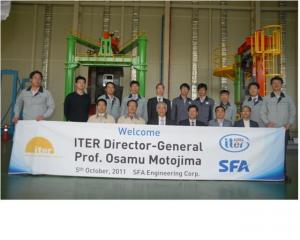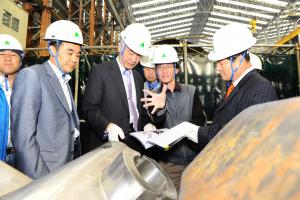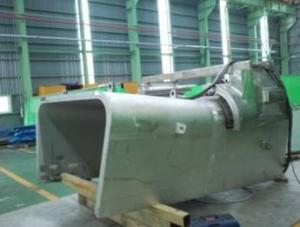In addition to assembly tooling and the manufacture of two vacuum vessel sectors, Korea also has procurement responsibility for the AC/DC converters for the ITER switchyard. Director-General Motojima made a final stop to Dawonsys, under contract with the Korean Domestic Agency to perform prototype R&D and testing. Dawonsys provided the power systems for the superconducting magnets as well as the high-voltage power system for the KSTAR tokamak.
All assemblies—from the output of DC
busbars, to the input of AC busbars, to a full-scale, six-pulse central solenoid converter unit—were engineered and integrated in the prototypes. Essential parameters such as temperature rise at rated current, good current sharing among paralleled thyristors, fuse coordination, and the soundness of the converter structure over the electromagnetic stress at fault condition were confirmed by the prototype converter.
The contract for AC/DC converters signed on 12 August between the Korean Domestic Agency and Dawonsys is expected to run for seven years, and covers the design, fabrication, site assembly and installation, and technical assistance during the integrated circuit test. The converters for ITER's toroidal field and central solenoid coils, vertical stability coils and correction coils (including master controllers, a dummy load, and spares) are deliverables on the contract.





